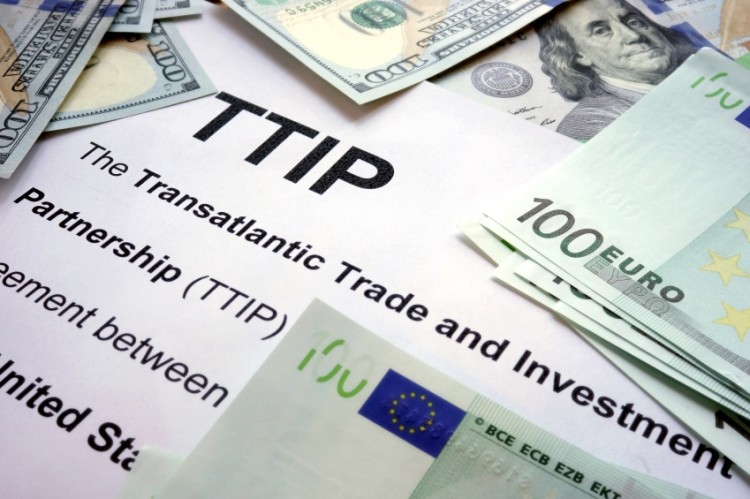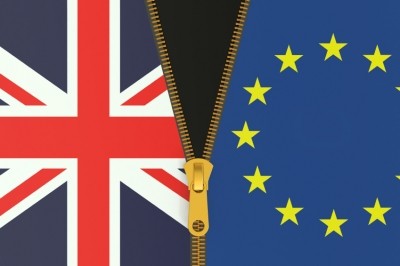Alarmist headlines (on TTIP) are a storm in a teacup: EU trade policy chief

Greenpeace Netherlands published 248 pages of what it termed ‘classified documents’ from the Transatlantic Trade and Investment Partnership (TTIP) trade talks this morning in a move it said would provide much needed transparency and one that would trigger informed debate.
The 13th round in the TTIP negotiations took place in New York last week. The European Commission is aiming to conclude a deal by the end of this year.
Greenpeace said the precautionary principle, enshrined in the EU Treat, is not mentioned in the chapter on regulatory cooperation or elsewhere in the leaked texts. “On the other hand the US demand for a ‘risk based’ approach that aims to manage hazardous substances rather than avoid them, finds its way into various chapters,” it noted.
The campaigners also said the classified papers show industry has been granted a privileged voice in important decisions: “The EU’s recent public report has only one minor mention of industry input, whereas the leaked documents repeatedly talk about the need for further consultations with industry,” said the organization.
EU Commission reacts
However, in a blog posting today, Commissioner Malmström said she wanted to correct a “number of misconceptions floating around” subsequent to the “supposed” leaks of the EU and US positions in TTIP talks.
She said, contrary to what is being reported, the so-called ‘consolidated texts’ in a trade negotiation are not the same thing as an outcome: “They reflect each side's negotiating position, nothing else. And it shouldn't come as a surprise that there are areas where the EU and the US have different views.
“There are areas in the TTIP negotiations where we have come a long way, but in others we are simply not in agreement.
“It is only normal that both parties in a negotiation want to achieve as many of their own objectives as possible. That does not mean that the other side gives in to those demands. That does not mean that the parties will meet halfway. In areas where we are too far apart in a negotiation, we simply will not agree. In that sense, many of today's alarmist headlines are a storm in a teacup.”
Malmström said the Commission has opened up the negotiations to make its positions on all matters in the negotiations public: “So the positions of the EU are well-known and nothing new,” she added.
Last Wednesday saw the EU executive publish a report on the state of play of the TTIP talks.
She said the latest proposal on regulatory coherence – tabled during the February 2016 round and made public shortly thereafter – does include references to the precautionary principle.
Malmström disagreed EU industry has greater access to EU negotiating positions than other stakeholders: “We take into account submissions by industry, but exactly the same applies to submissions by trade unions, consumer groups or health or environmental organizations – all of which are represented in the advisory group that regularly meets our negotiating team.”
She said she was not “in the business” of lowering standards. “Trade agreements will not change our laws on GMOs, or how to produce safe beef,” added Malmström.
EU chief negotiator, Ignacio Garcia Bercero, also gave a video briefing this morning on last week's TTIP round and the classified documents leaked by Greenpeace. “We are investigating how it got leaked. It is an issue of concern that it was leaked like this. I am not going to speculate now on the consequences of these leaks,” he told assembled journalists.
Warning about TTIP impact on EU farming
Mute Schimpf, food campaigner, Friends of the Earth (FOE) Europe, commenting on the papers, told FeedNavigator:
“These leaked documents confirm our concerns that European farming is being sacrificed to get a TTIP deal at any costs. With many farmers already struggling to survive this could be the final knock-out blow. It is now imperative that national governments take action to pull the plug on this toxic deal and demand that the negotiations are stopped.”
A report released last week by that environmental group, which included research assessing the impact of TTIP, concluded the deal will massively increase imports from the US, while having far fewer benefits for EU producers.
The FOE publication noted that only a few studies have even attempted to assess the impact of TTIP on food and farming, and they have struggled to capture this complexity.
Those studies concluded, wrote FOE, that export opportunities created through a TTIP do not necessarily translate into better incomes, with the US Department of Agriculture (USDA) predicting falls in the price paid to EU farmers in every food category (Beckman, et al., 2015).
European gains would be restricted to a few sectors, such as cheese, but even these are highly dependent on the US making changes to the ‘non-tariff measures’ that it uses to restrict trade (Bureau, et al., 2014), according to the FOE paper.
The models in the FOE report predicted TTIP will increase food and agriculture imports from the US (Fontaigne, et al., 2013; Beckman, et al., 2015), to the possible detriment of EU farmers, with the existence of whole sectors potentially threatened (Bureau, et al. 2014). Producers supplying the EU from other world regions would also potentially lose out as trade is displaced by US producers (Beckman, et al. 2015)
Tweets on TTIP leaks
The Greenpeace action has generated significant comment on social media today. Here is a sample:
#TTIPleaks confirms the EU has not been open about the high degree of industry influence. https://t.co/w0kD7CzqA8pic.twitter.com/k0srlysNU3
— Erik Wesselius (@erikwesselius) 2 May 2016
EEB @Pieter_de_Pous 's reaction on leaked #TTIP documents concerning EU-US trade deal: #TTIPleaks via @Greenpeacepic.twitter.com/wd0Yl1wEwn
— EEB (@Green_Europe) 2 May 2016
#TTIPLeaks show our public services are under threat from the EU. We call on .@The_TUC to reverse support for EU membership.
— Labour Leave (@labourleave) 2 May 2016







